It feels almost serendipitous that a film like We Live in Time exists. To have two of our generation’s most magnetic, vulnerable, and charming actors, Andrew Garfield and Florence Pugh, share a screen and a love story in such a carefully and tastefully constructed romance film feels special.
We Live in Time is directed by John Crowley (Brooklyn, The Goldfinch) — who had previously worked with Garfield in his silver screen debut in 2007’s Boy A — from a screenplay by Nick Payne. It follows a couple, Almut (Pugh) and Tobias (Garfield), over the course of a decade, as they fall in love, meet each other’s families, begin a family of their own, and battle terminal illness.
The contours of We Live in Time might feel overly familiar, maybe even dated, but its specifics are surprisingly novel and current. We meet these characters in their thirties, each living in their own particular socioeconomic context, with more or less developed careers, more or less enough money, and two very important past relationships that inform every decision they make regarding their newfound attraction for each other. Not only does this feel true to the reality of finding love in our day and age, but, much like the title suggests, the choice to portray two people in this distinct period of their lives forces the reflections on time (and how we choose to spend it) that permeate We Live In Time‘s entire runtime.
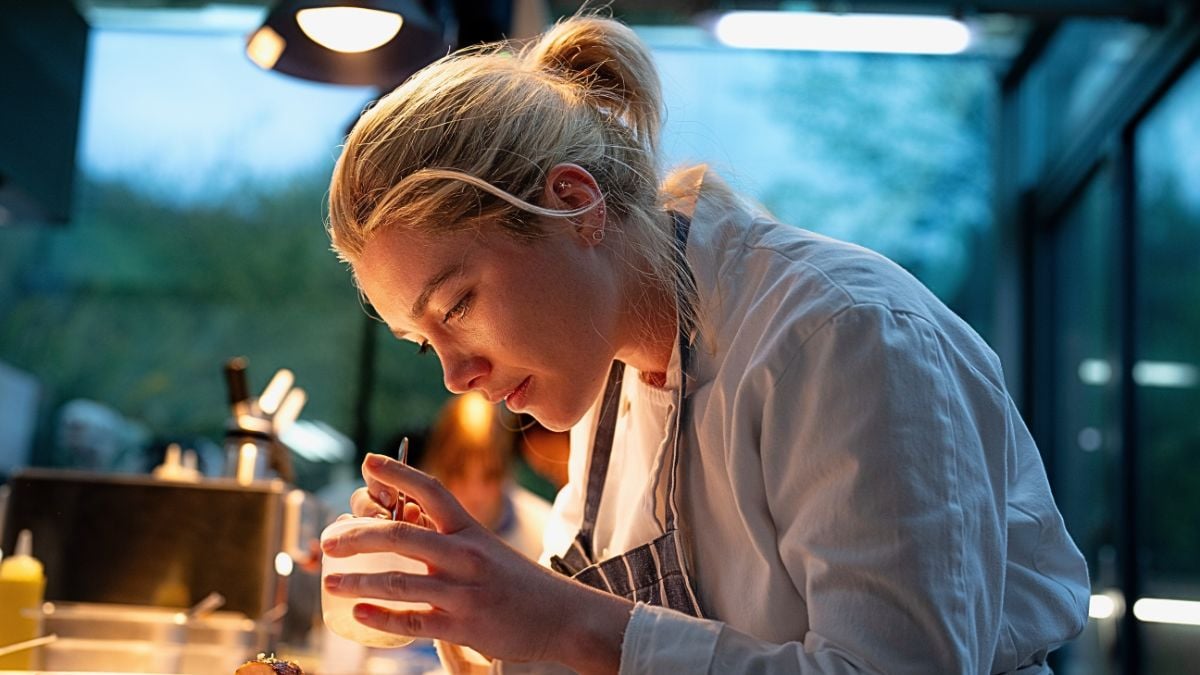
In your thirties, long gone is the wide-eyed recklessness of your ’20s, when everything is possible, and there’s little regard for the consequences for your future self of your current self’s actions and choices. On the other hand, you’re far from achieving the stability and routine of your forties, and there is still so much room for change and growth. Your thirties are really, and usually, the very last time you will have the whole world staring you down and asking you to make a decision regarding your love life, your family life, and your work life, for you’re approaching the phase where all those consequences finally catch up to you.
We Live in Time forces this evolution to an extreme when Almut is diagnosed with stage three ovarian cancer, her terminal illness pronouncing and emphasizing the urgency that was already there. By establishing this foundation, a whole world of possibility opens up for Crowley to explore the passage of time and, for the most part, he revels in it — starting with the choice to present the narrative non-linearly through constant jumps in time between three parallel timelines in the couple’s relationship. A less capable and inspired director would have hidden behind the gimmick as nothing but a stylish whim, without realizing its potential to drive the story forward and amplify its message.
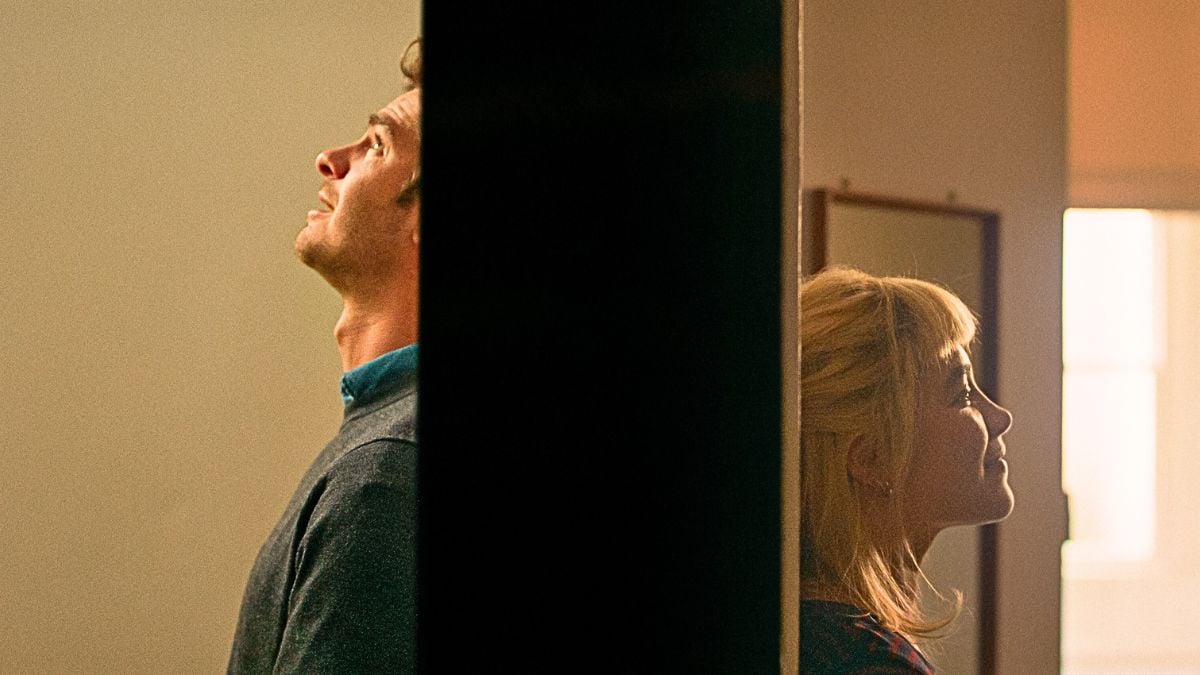
By jumping forward and backward (and forward again) between the past, present, and future, Crowley illustrates the interconnectedness of time as circular in shape, more akin to a skein of yarn than a straight line, and articulates the complicated causality of the first full decade of actualized adulthood — that every moment is a product of everything we have lived through, and every decision we have made. We don’t live independently of our history, we live in time, and a limited one at that. Cancer forces Almut and Tobias to face the ephemerality of life much sooner and much more intensely than they would have otherwise, though We Live in Time is more interested in expanding this meditation to anyone watching, regardless of how long they think they may live. The cancer, so to speak, is just a vehicle to make the issue more tangible.
One especially poignant scene sees Tobias deliberating between the future and the present, after he realizes he’s falling in love with a woman who might not want children, when becoming a dad is one of his dreams. It’s a tricky conversation to have, and We Live in Time‘s typically naturalistic and realistic tone gains a special brightness in this moment. The characters say the wrong thing and have a hard time explaining themselves, resulting in an aggressive defensiveness that pulls them apart. Almut is less concerned about the future, she’s someone who lives entirely in the present, whereas Tobias, who has recently overcome a painful divorce, sees any new relationship as an investment. He knows time is precious, and he has used too much of it already in a situation that didn’t yield the returns he had hoped for.
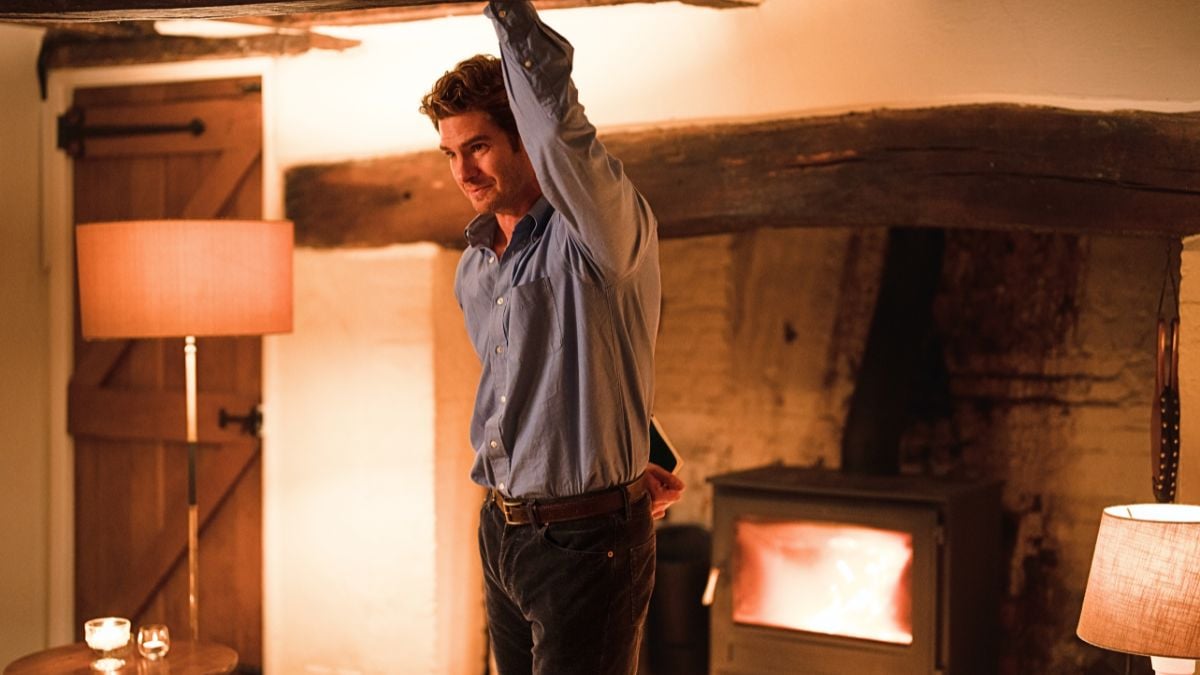
The cancer forces both to change their approach. Does Almut prioritize the little lifetime she still has left, or spend it sick from chemotherapy in the hopes of perhaps having more time in the future? Does she keep her reproductive organs in hopes of having a child one day and risk cancer recurrence, or remove them entirely? Meanwhile, Tobias must learn how to live in the present, and understand it might be just as important, if not more, than the future.
We Live in Time wraps these preoccupations brilliantly in the gorgeous paper of Florence Pugh and Andrew Garfield, whose faces and talents shine all the brighter when merged together, set alight by the leads’ easygoing, seamless chemistry and approach to their craft. The love story is soul-feeding and soul-crushing in all the right ways; their interactions believable and human, charmingly funny, and effortlessly loaded, propelled by Crowley’s minimalistic directing, and Stuart Bentley’s earthy photography that oscillates between warmth and coolness.
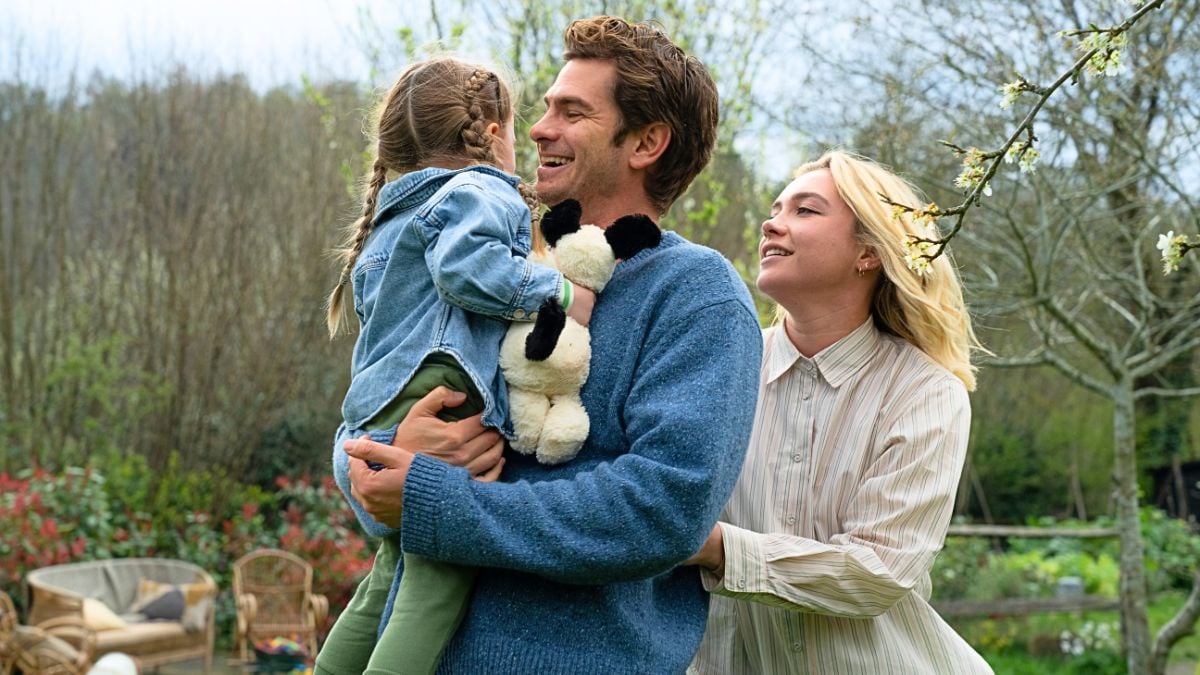
In the end, we’re left wishing only that the screenplay had gone a little further into, and with, these meaty ideas. The ending is too quick to release the tension that had been building up for over an hour, and too simplistic to feel truly satisfying after all the soul-searching the film had been inviting us to do.
We Live in Time is designed to make us emote, and it succeeds; it fluctuates between sensibility and tastefulness, never crossing into emotional manipulation. It’s a romance, no doubt, but you will find a lot more than just butterflies and tears between its frames. Even though it never strays too far from the surface, it raises pertinent questions about what we leave behind when we’re gone, and what we take with us — all while treating us to one of the best romantic pairings in recent memory.

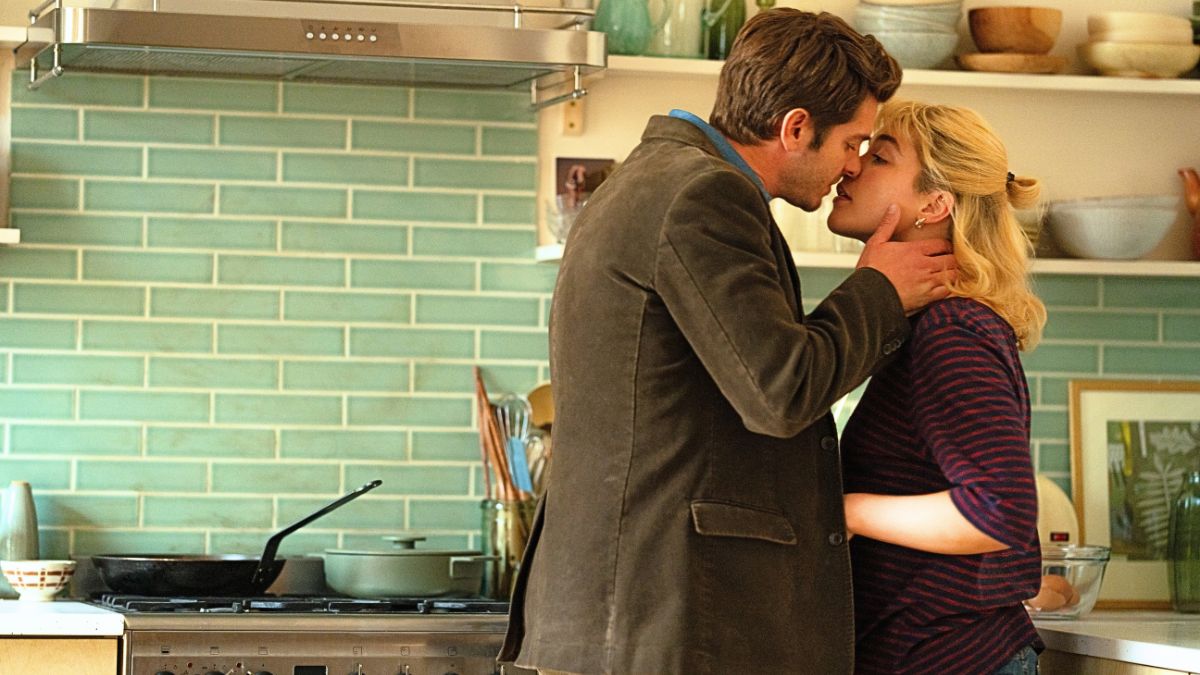









Published: Oct 11, 2024 02:55 pm